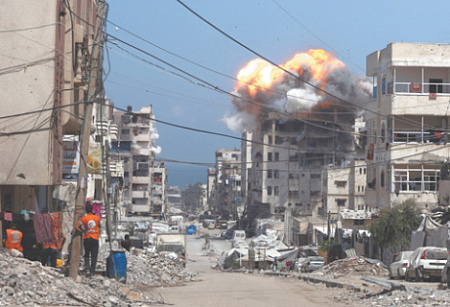
Israel’s military leadership has presented a plan to Prime Minister Benjamin Netanyahu’s government for a significant expansion of the war in the Gaza Strip, aiming to seize and maintain operational control over a much larger portion of the besieged enclave. According to reports from Israel’s Channel 12, the proposal, drafted by IDF Chief of Staff Eyal Zamir, is designed to exert maximum pressure on Hamas following a deadlock in negotiations for the release of Israeli hostages. While government ministers have reportedly endorsed the initiative, its implementation hinges on final approval from Netanyahu, who has yet to give his sanction.
The proposed escalation comes as the Israeli Defense Forces (IDF) are already intensifying operations across the territory. The military announced it is expanding raids in Gaza City while forces continue to engage in heavy fighting in the north and south. Critically, the IDF has launched its first ground operations in Deir al-Balah in central Gaza, an area previously spared a major ground offensive. New evacuation orders have been issued for residents in this area, further displacing the local population.
These new military actions have prompted a dire warning from the United Nations. The UN Office for the Coordination of Humanitarian Affairs (OCHA) stated on July 21 that the latest evacuation orders have increased the area under Israeli military control or evacuation directives to 87.8% of the Gaza Strip. This has effectively compressed 2.1 million civilians into a fragmented 12% of the territory, where, the UN notes, essential life-support systems are practically non-existent, deepening the humanitarian crisis and the fragmentation of the enclave.
Paradoxically, as the military mulls a wider campaign, it is also addressing growing dissent at home. Chief of Staff Zamir has ordered a significant reduction in the emergency call-up of reservists. This move follows mounting public and internal criticism over the prolonged nature of the conflict and complaints that many reservists were being kept on duty without being assigned to meaningful operational tasks. The IDF had mobilized hundreds of thousands of reservists since the war began, and the decision to scale back reflects the social and economic strain of the sustained military effort.
The government’s strategy is facing sharp criticism from the political opposition, who accuse the Prime Minister of deliberately prolonging the conflict for political gain. Avigdor Lieberman, a former defense minister and prominent opposition leader, explicitly charged that “Netanyahu wants to extend the war until the elections.” Lieberman argued that Hamas cannot be defeated without first securing the return of all hostages and called for sustained internal pressure on the government to end the operation and bring the captives home, highlighting a deep and growing rift within Israel’s political landscape over the war’s direction and endgame.
